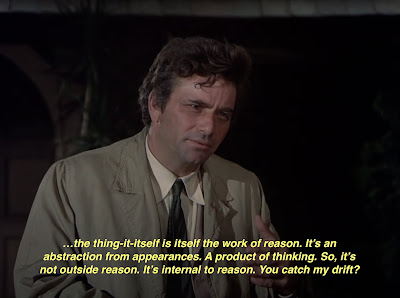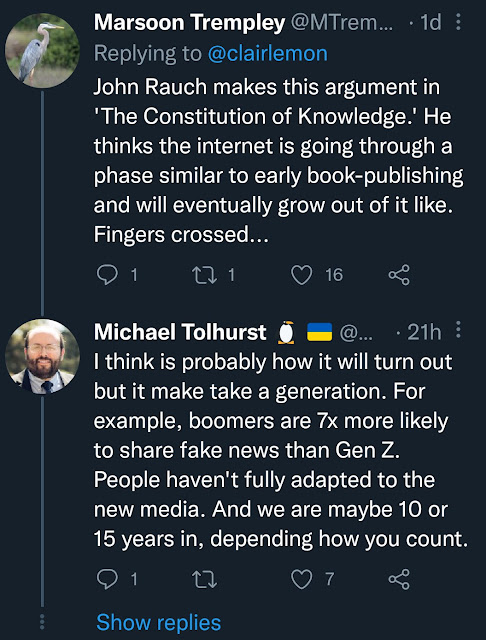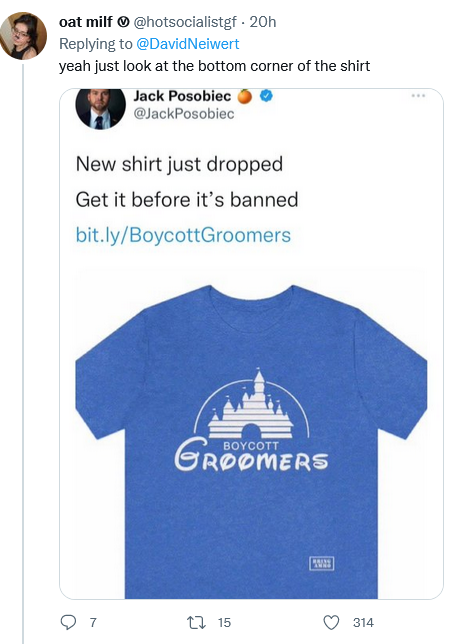Allahpundit at Hot Air posts about Bill Maher and Josh Rogan (ugh) agreeing that Democrats have a "common sense" problem. The things Maher cites are: too much spending on the pandemic; "defund the police"; pregnant "men"; and looting is "not illegal".
On the other hand, pro-Left people I like a lot on Twitter, like David Roberts, are continually complaining about how terrible the "two-sides" takes of mainstream media are, and yesterday he criticised the Republicans for being the ones who are obsessing about taking action to stop the tiny number of top trans sports competitors from competing. Also, I have noticed Twitter commentary about how low Biden's approval rating is with young (under 35) Democrats, with people arguing on the one side that this proves the party needs to move Left and away from what oldies in the Party want, and others pointing out that the young don't vote much anyway, so what's the point of that.
Unfortunately, I think both sides have a point, but I do wish that the American Left could just acknowledge a few things as common sense, or "centrist" positions:
a. allowing homeless people to camp on streets is bad for them, bad for other citizens, and should not be allowed. Laws (and court decisions) saying otherwise and preventing them being moved on and streets cleaned, need to be changed.
b. all theft is bad and needs to be prosecuted.
c. the police do not need "defunding". They need proper training.
d. a guy with a penis and a man's build and man's voice who went through puberty and built a man's body before deciding he was really a woman, and then wants to compete and wipe the floor against all women in the sport they've been training at for years, is being a jerk. He can call himself a woman, but if he had any decency, he wouldn't compete against them. [And as for complaints that this happens in a tiny, tiny number of cases - yeah, that might be an argument against wasting legislative time on it, but it's not an argument against the basic breach of fairness that these cases entail. It's like the significance of one fake tear at the end of Broadcast News - Holly Hunter was right to find that it mattered.]
I'll probably think of more things as the day progresses.
And, the usual rider: I get annoyed with things that I think the Left are nutty about, but they pale into insignificance in comparison to the utterly globally dangerous anti-democratic and anti-science nonsense the American Right currently is unwilling to rid itself of. This is why people like Rogan and Maher annoy me - if they had any sense of perspective, they would say something like "culture war issues about racism and gender and sexuality and policing shouldn't be as important to voters as they are - I mean, let's face the reality, there is a large anti-democratic movement afoot in this country, dominated by conspiracy nonsense promoted by a poisonous circle jerk between Right wing media and Right wing politicians, and they're using culture war issues to their ends. People shouldn't let them get away with that."
But no, their line is to give succour to the Christofascists by essentially arguing "well, those Lefties, they deserve to lose."
Update: Actually, I thought Ross Douthat's lengthy column "How to Make Sense of the New LGBTQ Culture War" is pretty good. Here is one section:
The concerns of some same-sex marriage advocates, meanwhile, are lucidly expressed by Jonathan Rauch in a recent essay for The American Purpose. Rauch
argues that the push for gay marriage represented a triumph of
moderation over radicalism within the gay community itself and worries
that today’s transgender-rights activists are taking a different path.
Where the gay rights movement emphasized
biological realities (“born this way,” etc.) and bourgeois aspirations
(to monogamy and marriage), today’s gender-identity advocates promote
“wild claims” about the social-constructedness of sex differences and
dismiss any contravening evidence as “violence.” This risks backlash, it
endangers all the accommodations to transgender rights that America is
ready to offer — and it also arguably hurts many gay and lesbian young
people, Rauch writes, since a system that encourages “tomboyish girls or
effeminate boys” to “identify as the opposite sex” ends up confirming
“all the hoary gender stereotypes that made generations of gay and
lesbian people (and many straight people) miserable.”
And
Rauch’s anxiety about gay youth here connects to the feminist concerns
as well — specifically, the worry that normal anxieties of puberty, the
particular challenges of girls’ mental health, are being addressed by
the new theories not through a reconciliation with one’s body and
biology but through an alienation from femaleness itself.
And, of course, I would put myself in the second category of possible reactions he describes to those surveys that show young people are enthusiastically now prepared to put themselves into the LGBTQ categories (although, mostly, the bi category):
The second interpretation: We shouldn’t read too much into it.
This trend is probably mostly just young people being young people,
exploring and experimenting and differentiating themselves from their
elders. Most of the Generation Zers identifying as L.G.B.T. are calling
themselves bisexual and will probably end up in straight relationships,
if they aren’t in them already. Some of the young adults describing
themselves as transgender or nonbinary may drift back to cisgender
identities as they grow older.
So we
shouldn’t freak out over their self-identification — but neither should
we treat it as a definitive revelation about human nature or try to
build new curriculums or impose certain rules atop a fluid and uncertain
situation. Tolerance is essential; ideological enthusiasm is
unnecessary.
Update 2: I forgot to criticise Maher's criticism of the government reaction to Covid - I have argued from the start that the complexity of that event (and the ambiguity of conflicting medical evidence) should mean a great deal of charity is given to the range of government responses, within reason.









%20_%20Twitter.png)

















